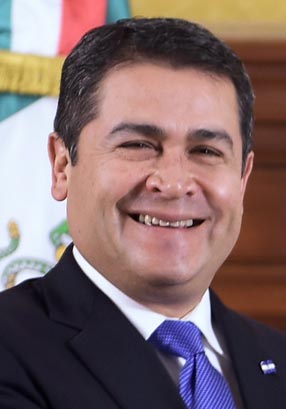WASHINGTON/TEGUCIGALPA, (Reuters) – The United States on Friday backed the re-election of Honduran President Juan Orlando Hernandez despite widespread misgivings about the vote count, prompting the opposition candidate to describe his bid for the presidency as a “lost cause.”
The Honduran electoral tribunal declared Hernandez winner of the Nov. 26 election last weekend amid strident opposition protests over the vote count in the impoverished Central American country, which is a major hub for drug trafficking.
The vote tally had initially clearly favored opposition candidate Salvador Nasralla, a center-leftist, but it swung in favor of the incumbent after a 36-hour delay.
After the United States weighed in, Nasralla was pessimistic about his chances of winning support in Honduras, claiming in an interview with Reuters that the nation’s supreme court and electoral tribunal are in Hernandez’s camp.
But he maintained that he had a path to victory at the international level, noting the Organization of American States (OAS) had called for new elections to resolve the dispute.
“Nationally, we think it’s a lost cause,” he told Reuters. “But internationally, we are confident that the OAS, which understands the great fraud in Honduras, will take action so that they repeat the elections.”
Earlier in the day, Nasralla appeared all but ready to bow out of the race, saying in an interview with TV network France TV that his political career was over.
“The situation is practically decided,” he told the network. “I no longer have anything to do in politics, but the people, which are 80 percent in my favor, will continue the fight.”
The United States followed Mexico and other Latin American countries in supporting Hernandez, who has been a reliable U.S. ally.
The U.S. State Department congratulated Hernandez and said Honduras should pursue a “long-term effort to heal the political divide in the country and enact much-needed electoral reforms,” spokeswoman Heather Nauert said in a statement.
The Honduras election tribunal’s declaration in Hernandez’s favor last week sparked violent protests in Honduras, and the OAS’s call for new elections has been rejected by the Honduran government.
Nasralla had been backed by former President Manuel Zelaya, a leftist who was ousted in a 2009 coup after he proposed a referendum on his re-election, which was barred by the constitution at the time. But Zelaya said Friday that Nasralla was no longer a member of his alliance.
Nasralla said that he had no need for party membership anymore.
“I am the president elect of all Hondurans,” he said. “It no longer makes sense to belong to the Alliance.”
The streets of the Honduran capital Tegucigalpa and other major cities were largely calm on Friday with a few protests cleared by the armed forces. By mid-week some 27 people had died in clashes, according to local human rights group COFADEH.
The State Department called for all sides to refrain from violence, for those who wish to challenge the result to use legal means, and for the government to ensure that security services respect the rights of peaceful protesters.
It also called for the electoral tribunal “to transparently and fully review any challenges filed by political parties.”
Hernandez has led a military crackdown against gangs in the Central American country, and Honduras’ notoriously high murder rate has slid since he took power in 2014.
Nasralla, a television host, traveled to Washington this week to urge the United States not to recognize the vote, but a senior State Department official said on Wednesday the government had not seen any evidence that would alter the vote’s outcome.
Nasralla said the U.S. decision reflected Washington’s strategic concerns over a leftist government in Honduras.
“They’re afraid of losing Honduras,” he told local television.

